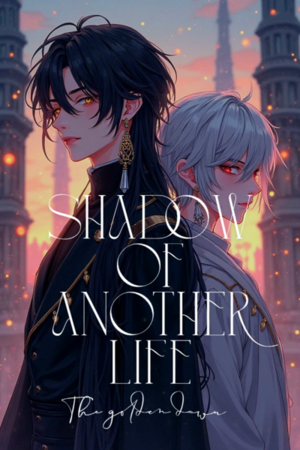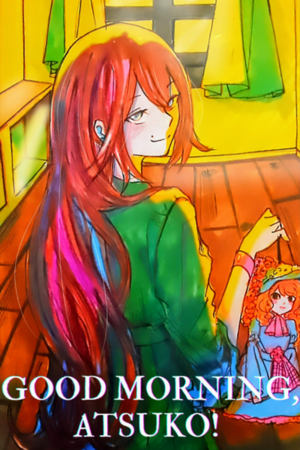Chapter 51:
Suicide
Shadows of another life: The golden dawn
When I think back on the life of “Caelith,” it’s strange how easily it slid over my shoulders—like stepping into an old coat I hadn’t realized was mine. In the days after waking in the river, before I ever reached the academy, I returned to the village where he had been raised. My village. But not mine..
The elf village was tucked deep inside a valley of towering oaks and silver-leaved willows, where sunlight filtered down in cool, dappled sheets and streams wound like crystal veins between the roots. Homes were built high among the trees, their pale wood and woven bridges gleaming softly in the sun. Children’s laughter echoed like bells through the branches, mingling with the songs of birds and the smell of bread rising in clay ovens.
It was beautiful—painfully so. It felt like stepping into a memory I never had.
And they remembered me. Or rather, they remembered real Caelith. I was no stranger here. Faces turned when I passed; elders smiled, little ones tugged at my sleeves.
I had always been the only child of my age—tall enough to run errands, young enough to be doted on. After my parents’ deaths (a fire in the western glade, the elders had murmured sorrowfully when I first arrived), the village had folded around me like a warm cloak. They had been my family when blood failed.
Living those days as Caelith was disorienting. Haruto—my real self—was still there inside me, with all the memories of Earth, my writing, my exhaustion. But Cael’s habits were there too, grafted onto my bones: the easy smile he gave to passing elders, the instinct to carry baskets for the herb-gatherers, the quiet patience of a child who had grown up without parents but never without care.
He had been an easygoing, kind-hearted boy. That much even the System had told me. But beyond that? Nothing. Cael had never been a character in my novel. He died on the road to the academy before he could ever enter the story. A detail mentioned once in a background note—barely more than a name on a census. The System had little data on him; everything it told me about Cael came with qualifiers: approximate, likely, inferred.
I realized, standing in the center of the village square, surrounded by laughing children and humming merchants, that I was writing him now. Living him. My choices would decide who Cael became.
And I already knew my first choice: I wouldn’t let him die.
It wasn’t even about self-preservation at first. It was tactical. If Cael died on the road to the academy the way the original story said he did, I’d never even reach Lucien, let alone save him. My mission would fail before it began. The System’s messages had been blunt about that: survival first.
So I planned.
Instead of taking the main road to the academy as the original Cael had, I charted a detour along the old river paths and hunting trails, threading my way through hills and forests and backwater towns. It meant longer travel and more hardship—blocked paths from heavy rains, washed-out bridges, detours through swamps and dense undergrowth—but it meant living.
And I lived. By the time I reached the academy gates, days later than I should have, I was mud-splattered, footsore, and exhausted. My name was nearly struck from the exam rolls. But I was alive. Cael was alive.
I will never forget the moment I first saw Lucien.
It was exactly as I had written it—the crowd in the courtyard, the morning sun glinting off banners, the nervous buzz of applicants waiting for their placement tests. But seeing him in flesh and blood, not words on a page, was like being hit in the chest.
His hair caught the light like spun gold, his eyes—deep, serious, far older than his years—scanned the crowd as if measuring it yet his bright smile, melts even the hardest soul. He stood straight-backed, elegant even in plain clothes, the faint trace of a bright smile ghosting his lips as he spoke to the boy beside him.
Arian.
The main character.
I had written this scene. I had written their first meeting, their dialogue, the faint hostility that would spark between them and later blossom into brotherhood. And now I was standing there, in the middle of it, my heart hammering in my chest.
When Lucien’s gaze slid over me, I nearly broke. My throat tightened, my eyes burned. I had imagined this boy for years, lived inside his tragedies, mourned him when I wrote his death. And now he was here, alive, breathing, within reach.
I turned away quickly, pressing the heel of my palm against my eyes before anyone could see.
Get it together, I told myself. You can’t save him if you’re a sobbing mess.
So I threw myself into the life of the academy.
I studied harder than anyone, rising before dawn to memorize incantations and train with a sword. I practiced until my hands blistered, until my arms trembled with exhaustion. The other students began to notice me, the quiet elf boy who seemed to be trying to burn himself alive on diligence. Even the instructors commented on my progress.
All the while, I watched Lucien. I mapped his habits, his routes, the subtle changes in his moods. I shadowed him without ever appearing to. I knew from my own writing when the early threats would emerge, when rival students would challenge him, when the first dark rumors would coil around his name. I tried to intervene where I could, subtly nudging events to keep him safe.
Months passed like that—hard training, quiet vigilance.
Sometimes I even let myself hope.
Because Lucien lived. He smiled. He laughed, though rarely, and when he did the sound was like sunlight through leaves. He sparred with Arian, argued with instructors, sat under the big oak by the training grounds to read. How everyone loved Lucien's presences. He was everything I had imagined and more.
And I thought: maybe I can do it. Maybe I can change this.
I knew how he died in the story. I had written it. A heroic sacrifice in the academy’s undercroft, protecting Arian from the demon incursion. A knife through the ribs, a whispered farewell, a body left behind. It was clean, tragic, cinematic. However he didn't die that way. It was worse than that. He..even his soul—
I hated it.
So I trained. I prepared. I swore to myself that when that moment came, I would step between him and the knife. I would take it instead, or avert it entirely. I would do whatever it took.
But the moment never came.
Instead, one gray morning, I woke to shouting in the dormitory courtyard.
I ran outside, heart hammering, and found a crowd gathering near the edge of the training yard. Whispers hissed through the air like snakes: rope… hanging… Lucien…
“No,” I said out loud, shoving through the students. “No, no, no…”
And then I saw him.
Lucien, hanging from a rope tied to the low branch of an oak. His face pale, lips bluish, eyes closed. His body swaying gently in the morning breeze.
The world tilted.
I didn’t remember falling to my knees, but I was there, on the damp grass, staring up at him. My breath came in ragged gasps. My heart felt like it had been stabbed, twisted.
No. Not like this. This wasn’t how it was supposed to happen. Lucien didn’t hang himself. He didn’t suicide. He… he…
“Move aside!” someone barked. Hands reached up, cutting the rope, lowering his body. Students crowded, voices a blur.
I couldn’t hear them.
Lucien lay on the grass now, still, his golden hair falling across his pale face.
Tears blurred my vision. My hands shook. This was wrong. This was wrong.
The System’s voice cut through the noise, cold and sharp:
> Mission: Identify the culprit. Mission updated.
I choked out a whisper, my voice barely audible. “Who… who did this?”
> Your objective is to reveal the culprit. Time frame: ongoing.
I clenched my fists, nails biting into my palms. “He didn’t do this,” I muttered. “Lucien would never… never…”
Another message blinked into my vision, stark and final:
> Secondary option: Rewind available. Condition: Your death within 24 hours. Confirm?
The words burned against my vision, sinking into my chest.
I stared at Lucien’s still face. The boy I had loved as a character, the boy I had come here to save, the boy who should have been laughing under the oak tree right now instead of lying cold on the grass.
Is it my fault 's again? Is it because I came to this world, tried to change the real plot?
If I died, time would rewind. I could try again.
But only if I died within twenty-four hours. Or should I try to find the culprit? But will I find them within the time period? What if I missed my chance to rewind the time?
I closed my eyes.
•••




Please sign in to leave a comment.